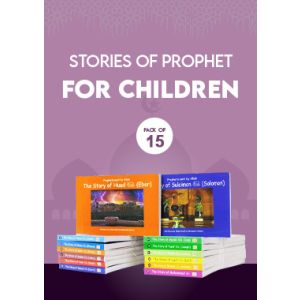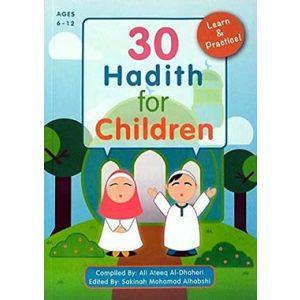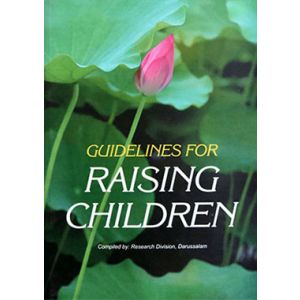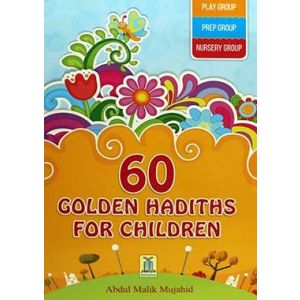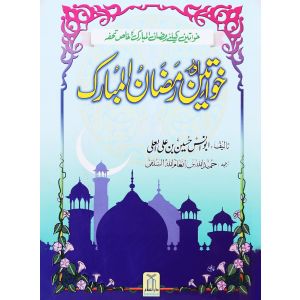We use cookies to make your experience better. To comply with the new e-Privacy directive, we need to ask for your consent to set the cookies. Learn more.
How to Choose the Right Islamic Books for Your Children
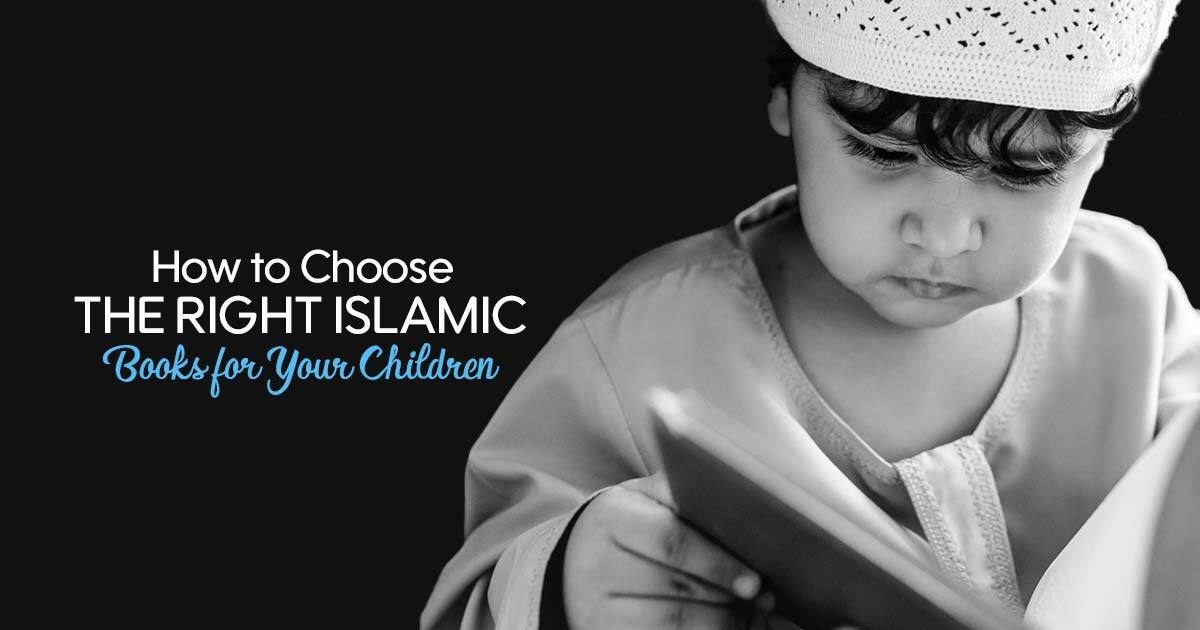
How to Choose the Right Islamic Books for Your Children
In today's fast-paced world, instilling Islamic values in children has become more crucial than ever. One of the most effective ways to do so is by introducing them to Islamic literature tailored to their age and understanding. However, with the plethora of options available, selecting the right Islamic books for your children can be overwhelming.
This blog by Darussalam aims to simplify the process by providing a step-by-step approach to choosing the most suitable Islamic books for your young ones.
Understand Your Child's Developmental Stage:
Children of different ages have varying levels of comprehension and interests. For instance, preschoolers may benefit from simple stories with colorful illustrations, while older children might prefer more detailed narratives or informational texts.
- Before selecting any Islamic books, it's essential to consider your child's age and developmental stage.
- Different age groups have varying levels of comprehension and interests. Tailor your book selection accordingly.
Determine the Purpose of the Book:
Defining the purpose of the book is essential in guiding your selection process. Whether you aim to educate your child about Islamic concepts, impart moral lessons through stories, or nurture their spiritual growth, clarifying your objectives will help narrow down your options.
- Are you looking for educational material to teach specific Islamic concepts?
- Do you want stories that convey moral lessons?
- Are you seeking books that inspire spiritual growth?
- Identifying the purpose will help narrow down your options.
Research Reliable Publishers:
The reputation and credibility of the publisher play a significant role in determining the quality of the books they produce. Conduct thorough research to identify publishers known for their commitment to excellence in Islamic children's literature.
- Look for publishers with a reputation for producing high-quality Islamic children's books.
- Seek recommendations from friends, family, or online communities.
- Research online reviews and ratings to gauge the credibility of the publisher.
Assess the Content:
When selecting Islamic books for your children, it's essential to evaluate the content to ensure its suitability and alignment with your family's values.
- Read reviews or summaries to ensure the book aligns with your family's values and beliefs.
- Check if the content is age-appropriate and engaging for your child.
- Verify the accuracy of the information presented, especially when it comes to Islamic teachings.
Consider Diversity and Representation:
Diversity and representation in children's literature are vital for fostering inclusivity and promoting cultural understanding.
- Choose books that showcase diverse characters and perspectives within the Islamic community.
- Representation matters, as it allows children to see themselves reflected in the stories they read.
- Look for books that celebrate cultural and ethnic diversity while promoting Islamic values.
Learn More: 5 Best Hadith Books for Kids
Evaluate the Language and Illustrations:
The language and illustrations in a book significantly impact its accessibility and appeal to young readers. Opt for books with clear, engaging language that is appropriate for your child's reading level.
- Pay attention to the language used in the book. It should be clear, simple, and understandable for your child.
- Assess the quality of illustrations, as they play a significant role in capturing children's interest.
- Opt for books with vibrant and visually appealing illustrations that complement the text.
Seek Interactive and Engaging Features:
Interactive features not only reinforce learning but also foster a deeper understanding of Islamic concepts and values.
- Interactive elements such as quizzes, puzzles, or activities can enhance the learning experience.
- Choose books that encourage participation and interaction, fostering a deeper understanding of Islamic concepts.
- Look for engaging storytelling techniques that captivate your child's attention.
Incorporate Islamic Values and Morals:
Islamic literature serves as a valuable tool for instilling moral values and ethical principles in children.
- Select books that emphasize important Islamic values such as compassion, honesty, and kindness.
- Stories with moral lessons provide valuable opportunities for teaching character development.
- Ensure that the content promotes positive behavior and ethical principles in line with Islamic teachings.
Prioritize Authenticity and Accuracy:
Authenticity and accuracy are paramount when selecting Islamic books for children. Ensure that the content reflects sound Islamic scholarship and teachings, free from inaccuracies, stereotypes, or cultural biases.
- Verify the authenticity of the author's credentials and the sources cited in the book.
- Choose books that adhere to sound Islamic scholarship and teachings.
- Avoid materials that perpetuate stereotypes or misinformation about Islam and Muslims.
Build a Diverse Collection:
Building a diverse collection of Islamic books ensures that your child is exposed to a wide range of topics, perspectives, and experiences within the Muslim community.
- Create a diverse library of Islamic books that cover various topics, themes, and genres.
- Include books on Islamic history, Prophet Muhammad's life, Islamic holidays, and contemporary Muslim experiences.
- Expose your child to a range of perspectives within Islam to foster a well-rounded understanding.
Read More: 7 Must-Read Darussalam Books in Ramadan
Conclusion:
Choosing the right Islamic books for your children requires careful consideration of various factors, including content, age-appropriateness, and authenticity. By following the guidelines outlined in this comprehensive guide, you can build a diverse collection of Islamic literature that educates, inspires, and instills valuable moral values in your young ones. Remember, investing in your child's spiritual development through Islamic books is an investment in their future as confident, compassionate, and knowledgeable individuals.
FAQs About How to Choose the Right Islamic Books for Your Children:
1. How can I introduce Islamic books to my child if they are not interested in reading?
You can start by choosing books with appealing illustrations or interactive features. Storytelling sessions can also be engaging. Lead by example and show enthusiasm for reading Islamic literature.
2. Are there any online resources for finding Islamic books for children?
Yes, platforms like Muslim Kids Books, Islamic Bookstore, and Noorart offer a variety of options. You can also find digital versions on Amazon Kindle and Google Play Books.
3. Should I prioritize books written by Muslim authors?
Focus more on the content and quality rather than the author's background. Ensure the content aligns with Islamic teachings regardless of the author.
4. How can I ensure that the books I choose are free from cultural biases or inaccuracies?
Seek recommendations from scholars or educators. Look for books that have undergone cultural sensitivity training and strive to represent diverse Muslim experiences accurately.
5. Can Islamic books be used as a tool for teaching Arabic language skills?
Yes, many Islamic books include Arabic terms and phrases, providing opportunities for language learning. Opt for bilingual books or those specifically designed for teaching Arabic vocabulary and pronunciation.

 United Kingdom
United Kingdom United Arab Emirates
United Arab Emirates Pakistan
Pakistan




